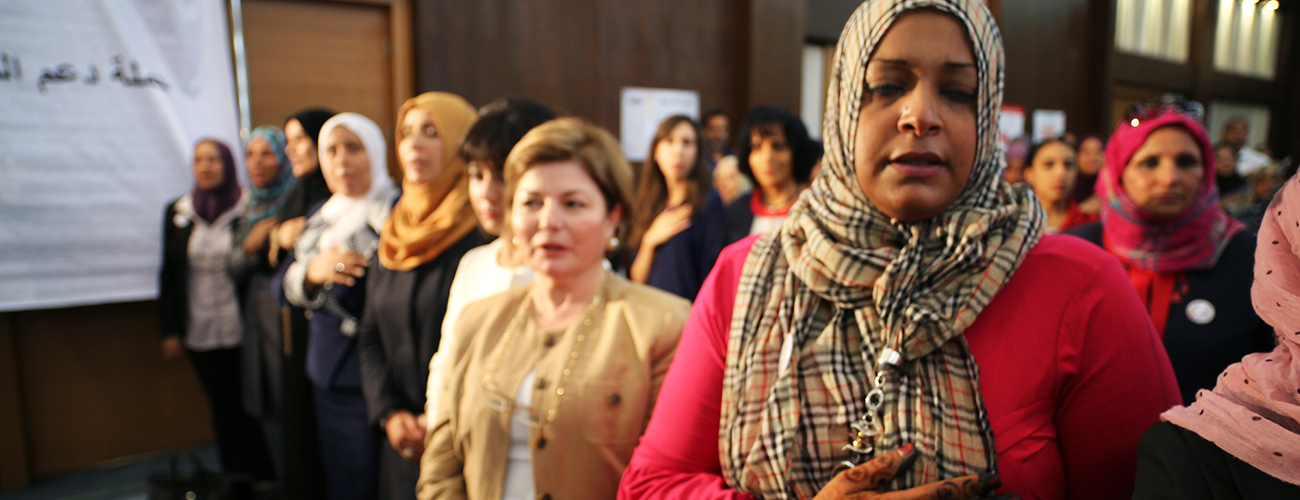Women sing the Libyan national anthem during an UN-sponsored event designed to encourage female candidates to participate more fully in the country’s first free elections in nearly half a century, June 27, 2012. (UN Photo/Iason Athanasiadis)
Historically, the women, peace, and security (WPS) agenda’s four pillars—prevention, protection, participation, and relief and recovery—have largely developed along separate trajectories. This has started to change with the UN Security Council’s recent progress in recognizing the link between women’s participation in peace and security and their protection, as well as the need to create “enabling environments” for women’s participation. Nonetheless, there is often a gap between international frameworks on participation and protection and the realities experienced by women, especially in conflict-affected contexts.
To address that gap, this paper analyzes the experiences of women in Libya and the obstacles they face when participating in peace and security and political processes. Using an ecological framework, it details the risks that women who participate encounter at six levels: individual, interpersonal, community, national institutional, societal, and global institutional. Through this analysis, the report deepens the evidence for and understanding of the critical relationship between protection and participation, broadens analysis of and provides pointers for the mainstreaming of WPS in UN mission mandates, and provides a new framework to advance the creation of safe and enabling environments for women’s participation.
In order to advance women’s full, equal, meaningful, and safe participation, the report offers the following recommendations.
For the Security Council and member states:
- Continue to build on progress on mainstreaming WPS in mission mandates;
- Prioritize the implementation of Resolution 2493’s provision on creating “enabling environments” for women’s participation; and
- Ensure gender advisers with context-specific expertise are mandated and properly resourced in all UN missions.
For UN missions, agencies, and partners:
- Conduct context-specific participation and protection analyses;
- Strengthen coordination between the UN missions, UN agencies, and other international organizations working on related issues to address the full range of protection-related barriers to women’s participation; and
- Ensure a gender-sensitive approach to the use of digital tools for participation to reflect the increased risks to women in online environments.








